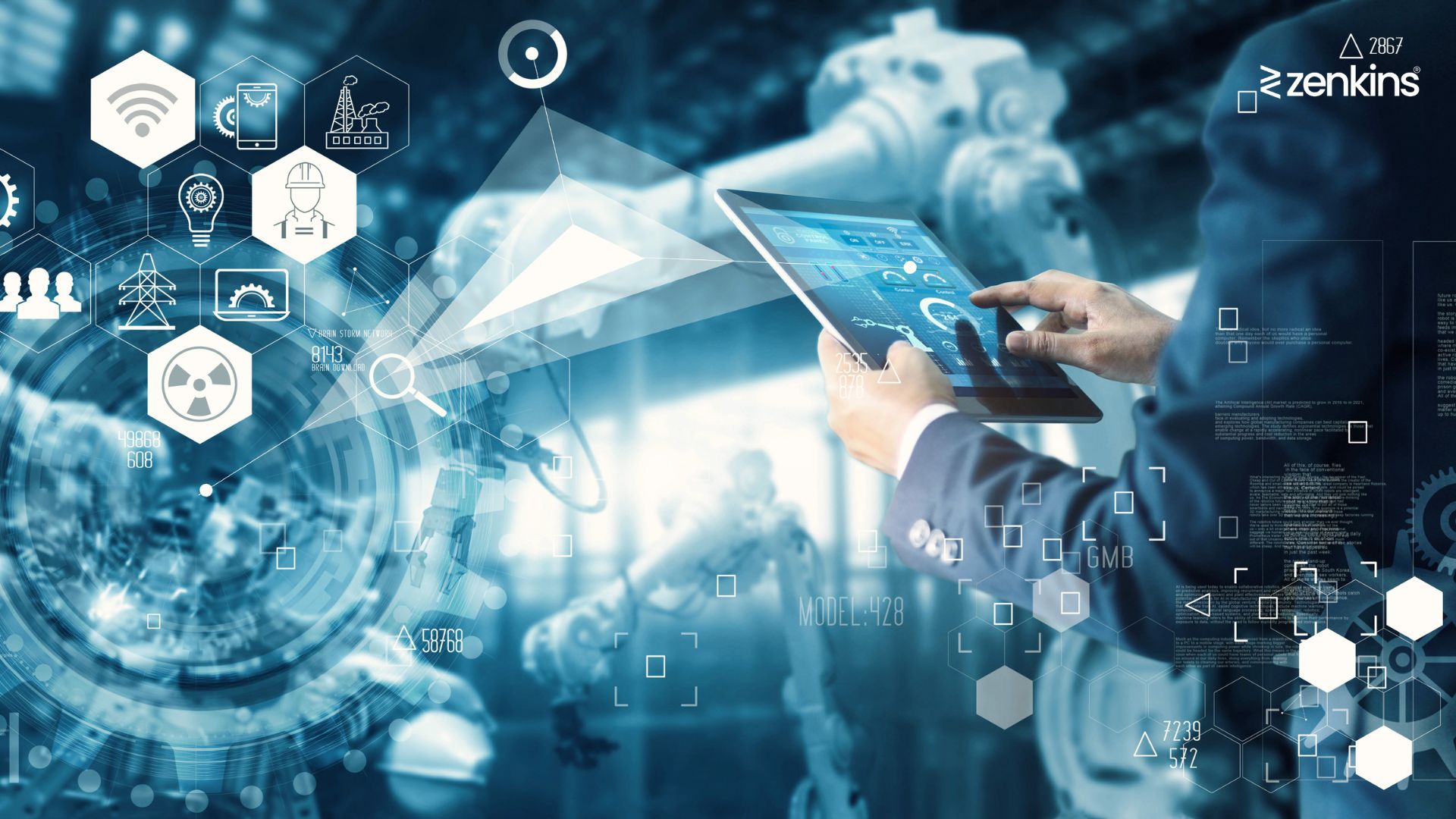Machine Learning for Software Engineers: Leveraging AI in Software Development
Table of Contents
Machine Learning and Artificial Intelligence (AI) have revolutionized various industries, and software engineering is no exception. As technology continues to advance, the integration of machine learning in software development has become increasingly important. This article explores the applications of machine learning in software engineering, its role in enhancing efficiency and automation, and the challenges and best practices associated with leveraging AI in software development projects. Additionally, we will examine case studies highlighting successful implementations of machine learning in the software engineering domain, along with future trends and possibilities for further advancements.
Introduction to Machine Learning and Artificial Intelligence (AI)
What is Machine Learning?
Machine learning is like teaching your computer to think for itself, without explicitly programming it to do so. It’s like having a friend who learns from experience and adapts their behavior accordingly. Instead of following a predetermined set of rules, machine learning algorithms analyze data and make predictions or decisions based on what they’ve learned. It’s pretty much how your brain works, minus the capacity for existential crises.
Understanding Artificial Intelligence (AI)
Artificial Intelligence, or AI, is a broad field that encompasses machine learning. It’s all about creating computer systems that can perform tasks that would typically require human intelligence. AI can range from simple rule-based systems to complex machine learning algorithms. But let’s be honest, we’re still far from creating a true AI that can spontaneously sing show tunes while doing the dishes.
The Intersection of Machine Learning and Software Engineering
Software engineering and machine learning have become like two peas in a pod. With the increasing availability of data and computational power, machine learning has found its way into various software applications. It’s like adding an extra sprinkle of intelligence to software development, making it more efficient and capable of tackling complex tasks. So, if software engineering is a party, machine learning is the cool kid who knows all the dance moves.
The Role of Machine Learning in Software Development
Enhancing Efficiency and Automation in Software Development
Machine learning can automate repetitive tasks, freeing up valuable time for software engineers to focus on more important things. It’s like having a robotic assistant that takes care of the boring bits, allowing you to unleash your creative genius. Plus, with machine learning algorithms continuously learning and improving, it’s a win-win situation for productivity and personal growth.
Improving Predictive Analytics and Decision Making
Predictive analytics is like a crystal ball for software engineers. By analyzing historical data, machine learning algorithms can make accurate predictions and help you make informed decisions. It’s like having a fortune teller on your team, minus the questionable fashion choices and excessive use of tarot cards.
Enabling Advanced Pattern Recognition and Data Analysis
Machine learning algorithms excel at recognizing patterns in massive amounts of data. This superpower can be utilized to uncover valuable insights and extract meaning from complex datasets. It’s like having a detective who can effortlessly spot the subtlest clues and solve even the most perplexing mysteries. Sherlock Holmes, eat your heart out.
Applications of Machine Learning in Software Engineering
Machine Learning for Software Testing and Quality Assurance
Machine learning can assist in testing and quality assurance by identifying patterns of errors or anomalies. It’s like having an eagle-eyed inspector who can quickly spot bugs and ensure that your software is as smooth as a freshly buttered biscuit. No one likes a buggy biscuit.
Natural Language Processing in Software Development
Natural Language Processing (NLP) allows software to understand and respond to human language. It’s like having a language translator who can effortlessly bridge the gap between developers and users. Because let’s face it, not everyone speaks fluent “tech jargon.”
Recommender Systems for Personalized User Experiences
Recommender systems use machine learning algorithms to suggest personalized content or recommendations to users. It’s like having a virtual concierge that knows your exact preferences, ensuring you have the best experience possible. Who needs human friends when you have an AI buddy who knows you better than you know yourself?
Challenges and Limitations of Incorporating Machine Learning in Software Development
Data Privacy and Security Concerns
With great power comes great responsibility, and machine learning is no exception. Collecting and storing large amounts of data for training machine learning models can raise privacy and security concerns. It’s like walking a tightrope between reaping the benefits of AI and ensuring data protection. Safety first, even in the digital realm.
Lack of Quality and Labeled Training Data
Machine learning algorithms rely on good-quality, labeled data to learn effectively. However, getting access to such data can be challenging and time-consuming. It’s like trying to find a rare Pokémon for your collection but realizing it’s nowhere to be found. Gotta catch ’em all, including those elusive labeled datasets!
Ethical and Bias Issues in Machine Learning Algorithms
Machine learning algorithms are only as good as the data we feed them. If the training data contains biases or unethical behavior, the algorithms can inadvertently reproduce these biases. It’s like teaching a parrot to repeat offensive jokes and then acting surprised when it starts offending others. Responsible AI is all about awareness and addressing biases head-on.
Best Practices for Leveraging AI in Software Engineering Projects
Identifying Relevant Use Cases and Problem Statements
When it comes to leveraging AI in software engineering projects, the first step is to identify the relevant use cases and problem statements. This involves understanding the pain points and challenges faced by software engineers and finding areas where machine learning can provide meaningful solutions. Whether it’s automating repetitive tasks, improving code quality, or optimizing performance, it’s important to have a clear understanding of the problems you want to solve before diving into AI implementation.
Choosing the Right Machine Learning Algorithms and Models
Once you have identified the use cases and problem statements, the next step is to choose the right machine learning algorithms and models. There are a plethora of options available, ranging from traditional algorithms like decision trees and linear regression to more advanced techniques like neural networks and deep learning. It’s crucial to select the algorithms and models that best suit the specific requirements of your project. Consider factors such as data availability, computational resources, and accuracy requirements to make an informed decision.
Establishing a Robust Data Pipeline and Data Governance
In machine learning, data is the fuel that drives the algorithms. To leverage AI effectively in software engineering, it’s essential to establish a robust data pipeline and implement data governance practices. This involves collecting, cleaning, and preprocessing data, as well as ensuring its quality and integrity. Additionally, it’s important to have proper data governance measures in place to handle sensitive and confidential information in a secure and compliant manner. Remember, good data is the foundation of successful machine learning projects.
Future Trends and Possibilities of Machine Learning in Software Development
Deep Learning and Neural Networks in Software Engineering
The future of machine learning in software development looks promising, with deep learning and neural networks leading the way. These advanced techniques have the potential to revolutionize various aspects of software engineering, such as natural language processing, image recognition, and anomaly detection. Imagine a world where your code can understand and fix itself, or where AI-powered assistants can help you write better and more efficient code. The possibilities are endless!
Explainable AI and Interpretable Machine Learning
As the prevalence of machine learning in software development becomes more, there is an increasing need for explainable AI and interpretable machine learning. Understanding and interpreting how AI models make decisions is crucial for building trust and ensuring transparency. Software engineers need to be able to explain the outputs of their AI systems, especially when it comes to critical applications like autonomous vehicles or healthcare. As a result, the field of explainable AI is gaining traction and will continue to evolve in the future.
Augmented Development and Intelligent Assistants for Programmers
Another exciting trend in machine learning for software development is the rise of augmented development and intelligent assistants for programmers. These tools aim to assist developers in their day-to-day tasks, providing suggestions, automating repetitive tasks, and offering insights on best practices. Imagine having an AI-powered pair programming partner who can catch coding mistakes, suggest improvements, and keep you company during those late-night coding sessions. It’s like having a personal coding buddy who never gets tired or hungry!
Conclusion
In conclusion, machine learning in software development offers tremendous opportunities for software engineers to enhance their development processes and create more intelligent and efficient software solutions. By leveraging AI techniques, developers can improve predictive analytics, automate repetitive tasks, and gain valuable insights from vast amounts of data. However, it is important to be mindful of the challenges such as data privacy, bias, and ethical considerations that come with incorporating machine learning into software development. By following best practices and staying informed about the latest trends, software engineers can harness the power of machine learning to drive innovation and shape the future of software development.
FAQ
What is the difference between machine learning and artificial intelligence?
Machine learning is a subset of artificial intelligence that focuses on algorithms and statistical models to enable computers to learn and make predictions or decisions without being explicitly programmed. Artificial intelligence, on the other hand, refers to the broader concept of creating intelligent machines that can simulate human intelligence and perform tasks that typically require human intelligence, such as problem-solving and decision-making.
How beneficial is machine learning for software engineers?
Machine learning can benefit software engineers in various ways. It can automate repetitive tasks, improve efficiency, and enhance predictive analytics in software development. It can also help with detecting bugs, generating code, and providing personalized user experiences. By leveraging machine learning techniques, software engineers can streamline their development processes and create more intelligent and innovative software solutions.
What are some challenges associated with incorporating machine learning in software development?
There are several challenges to consider when incorporating machine learning in software development. These include obtaining high-quality and labeled training data, addressing data privacy and security concerns, and dealing with ethical and bias issues in machine learning algorithms. It is crucial to address these challenges to ensure the successful integration of machine learning techniques and to mitigate any potential risks or biases in the software development process.
What are the future trends in machine learning in software development?
The future of machine learning in software development holds exciting possibilities. Deep learning and neural networks are expected to play a more prominent role in software development, enabling more advanced pattern recognition and data analysis. Explainable AI and interpretable machine learning are also emerging trends, ensuring transparency and understanding of AI-generated decisions. Additionally, augmented development and intelligent assistants for programmers are being explored to further enhance productivity and collaboration in software engineering.






